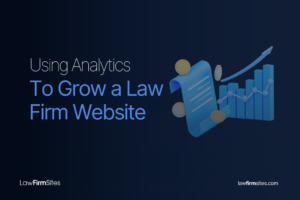Why Law Firms Need Schema Markup?

Search engines are increasingly relying on structured signals to understand pages about attorneys, practice areas, and local offices. Schema markup turns your law firm’s website into machine‑readable data, making content clearer to search engines and eligible for rich results. When implemented correctly, it supports search engine optimization for lawyers by improving visibility and click‑through. This article explains what schema is, why it matters for law firms, how to implement it, and the common pitfalls to avoid.
What Is Schema Markup?
Schema markup, also called structured data, is code added to a webpage that labels the meaning of your content. Instead of forcing search engines to infer that “Whitten Law Office” is a business at a specific address offering legal services, schema states those facts explicitly in a standardized vocabulary. The most common format is JSON‑LD embedded in the page’s HTML and using the Schema.org vocabulary (for example, LegalService, Attorney, LocalBusiness, Organization, Service, FAQPage, and Article). When your markup aligns with on‑page content and search engine guidelines, your pages may be eligible for rich results such as review snippets, FAQs, breadcrumbs, and sitelinks.
How Can Law Firms Benefit from Schema Markup?
Better Local SEO Performance
For firms that serve clients in a city or metro area, LocalBusiness/LegalService markup clarifies your name, address, phone number, service areas, hours, and geographic coordinates. This helps search engines connect your website with your Google Business Profile and local citations, improving local relevance and supporting map and localized organic rankings. Accurate structured data also reduces ambiguity when multiple firms share similar names in the same region.
Content Quality for Better Visibility
Practice area pages often include overlapping legal terms (e.g., “truck accident,” “premises liability,” “probate”). Schema lets you declare each page’s primary entity and the services offered, increasing topical clarity. Service markup on practice pages and Article markup on blogs reinforce page focus, which can support higher impressions and more stable rankings for competitive queries.
Visibility Benefits in AI‑Powered Search
Search experiences increasingly use generative and assistant‑style answers. Clear entities and attributes (firm, attorneys, locations, services, reviews, and FAQs) make it easier for AI systems to extract factual details and link back to your pages. Structured data will not guarantee inclusion in AI summaries, but consistent markup improves your eligibility when answers draw from authoritative sources.
Improved User Experience in Search Results
Rich results enhance how your snippets appear. Valid FAQPage markup can add expandable questions and answers; BreadcrumbList can replace long URLs with readable paths; Review/AggregateRating can display rating information when the source and policy requirements are met. These enhancements guide searchers to the right page faster, and they often increase click‑through rate.
Voice Search Optimization
Voice assistants typically prefer concise, fact‑based answers with clear entities. Structured data helps disambiguate names, practice areas, and locations, supporting answer extraction for prompts like “injury lawyer near me open now” or “who handles probate in [city].” While no markup alone guarantees voice placement, schema improves machine understanding that underpins voice results across assistants.
Future‑Proofing for AI
Schema.org expands over time, and search products evolve. Keeping entities, relationships, and attributes structured makes your content easier to reuse across new result types. A structured foundation also simplifies site migrations, rebrands, and multi‑location expansions.
Yields Higher Website Traffic and Lead Generation
By improving eligibility for rich results and clarifying relevance for local and practice‑area queries, schema can lift impressions and clicks. More qualified visitors reach the right page quickly (for example, a “free consultation” FAQ accordion leading directly to the contact or booking flow), which can increase inquiries from organic search.
Potential Pitfalls in Schema Markup
Mismatched or misleading data
Do not claim ratings or reviews in markup that are not actually present and sourced in a manner permitted by search policies. Self‑serving reviews and testimonials placed on your own site generally are not eligible for review rich results.
Marking up content that is not visible
If a property is not visible to users (for example, hidden FAQs), avoid marking it up. Search engines expect parity between what the user sees and what the code declares.
Duplicate or conflicting entities
Multiple Organization blocks with different names or LocalBusiness entries using old addresses create ambiguity. Use a canonical “@id” for the firm and reference it consistently.
Using the wrong type
Marking every page as Organization or every article as BlogPosting without checking fit can limit eligibility or clarity. Choose the most specific type that truly matches the page.
Overuse of FAQ markup
FAQ rich results are intended for genuine, user‑visible Q&A. Applying them site‑wide to non‑FAQ content can lead to loss of eligibility across the site.
Syntax and nesting errors
Missing commas, incorrect @context, or nesting that does not connect entities will invalidate your data. Validate before publishing and after template changes.
Stale business information
Out‑of‑date hours, moved offices, or changed phone numbers in the schema mislead search engines and potential clients. Keep business details synchronized with your Google Business Profile and major directories.
Build a formidable foundation to reach your marketing goals
Schema markup gives law firm websites a clear, structured foundation that supports local visibility, richer snippets, and better eligibility for emerging AI‑driven results. By choosing the correct types, aligning markup with visible content, and validating regularly, firms can strengthen relevance and user experience in search. Avoid shortcuts such as fake ratings or hidden FAQs, and keep business details accurate as your practice evolves.
If you would like a simple checklist or examples to speed up your implementation, explore the resources at Law Firm Sites to get started.
Did you like this post? Here are some others you might enjoy:

For most law firms, growth depends on being visible at the exact moment a potential client searches for help. Pay‑per‑click…

Strong legal marketing rewards depth. When potential clients face high-stakes decisions, they search for thorough, trustworthy guidance that clearly explains…

Data is the most reliable guide for growing a law firm website because it shows what clients actually search, where…

